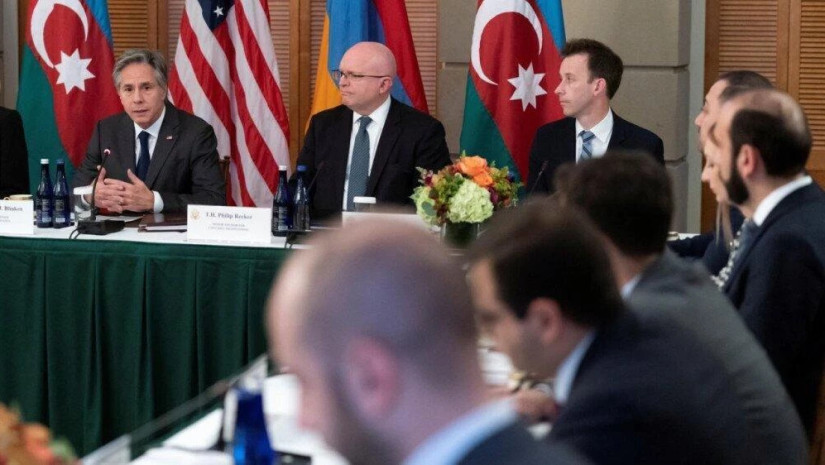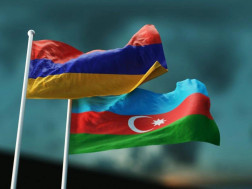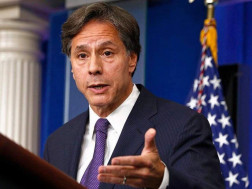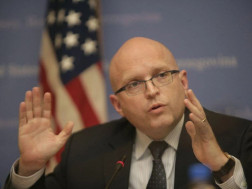US Secretary of State Antony Blinken hosted the foreign ministers of the rival nations.
"The United States is committed to the peace negotiations between Armenia and Azerbaijan," Blinken said before the meeting. "Direct dialogue is the best way to a truly durable peace, and we are very pleased to support that."
An American official, speaking on condition of anonymity, said the meeting was less about peace negotiations in the full sense of the term, and more about providing an opportunity for the warring parties to meet and talk.
A week ago, Armenian Prime Minister Nikol Pashinyan and Azerbaijani President Ilham Aliyev "agreed not to use force" to resolve their dispute over the Nagorno-Karabakh territory, during a summit in Russia hosted by President Vladimir Putin.
However, in the early hours of Monday, Azerbaijani forces opened fire on Armenian positions in the eastern sector of the Armenian-Azerbaijani border, the defence ministry in Erevan said in a statement, adding there had been no casualties.
Meanwhile, Azerbaijan's defense ministry accused Armenian forces of shooting at the positions of Azerbaijani troops stationed at several locations on the frontier.
Kremlin spokesman Dmitry Peskov on Monday called on both parties to "refrain from the actions and steps that could lead to an escalation of tensions."
Erevan and Baku fought two wars over the disputed territory of Nagorno-Karabakh -- in autumn of 2020 and in the 1990s.
Six weeks of fighting in 2020 claimed more than 6,500 lives before a Russian-brokered truce ended the hostilities.
Under the 2020 deal, Armenia ceded swathes of territory it had controlled for decades, and Russia stationed peacekeepers to oversee the fragile ceasefire.
There have been frequent exchanges of fire at the Caucasus neighbors' border since the 2020 war.
In September, more than 280 people from both sides were killed in new clashes.
When the Soviet Union collapsed in 1991, ethnic Armenian separatists in Nagorno-Karabakh broke away from Azerbaijan. The ensuing conflict claimed around 30,000 lives, France24 reports.
















